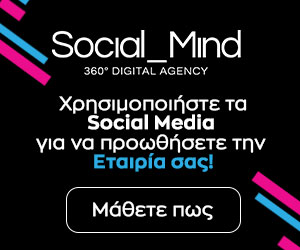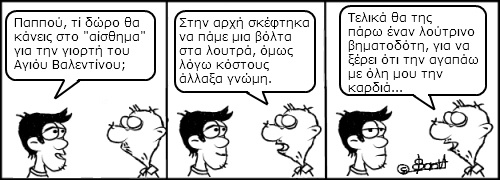
Όλοι μας έχουμε ακούσει τον όρο Web 2.0. Ουσιαστικά ζούμε μέσα στον κόσμο του που περιβάλλει το διαδίκτυο στις μέρες μας. Το μέλλον όμως έρχεται και ονομάζεται Web 3.0
Τι σημαίνει όμως ο όρος αυτός; Μην περιμένετε να σας εξηγήσω με πλήρης ακρίβεια για το λόγο ότι δεν έχει ακόμα διαμορφωθεί ποια θα είναι η μορφή του και ποιες επαναστατικές τεχνικές θα φέρει στο Internet με τον ερχομό του. Πολλά έχουμε ακούσει και έχουμε διαβάσει για το Web 3.0, αλλά τι λένε οι “μεγάλοι” γι’ αυτό; Ας δούμε μερικούς ορισμούς που έδωσαν στο όρο o Tim Berners-Lee, τα αφεντικά της Google, της Yahoo και της Netflix.
- Tim Berners-Lee :
“I think maybe when you’ve got an overlay of scalable vector graphics – everything rippling and folding and looking misty – on Web 2.0 and access to a semantic Web integrated across a huge space of data, you’ll have access to an unbelievable data resource”
- Eric Schmidt(Google) :
“If I were to guess what Web 3.0 is, I would tell you that it’s a different way of building applications. My prediction would be that Web 3.0 will ultimately be seen as applications which are pieced together. There are a number of characteristics: the applications are relatively small, the data is in the cloud, the applications can run on any device, PC or mobile phone, the applications are very fast and they’re very customizable. Furthermore, the applications are distributed virally: literally by social networks, by email. You won’t go to the store and purchase them.That’s a very different application model than we’ve ever seen in computing”
- Jerry Yang(Yahoo) :
“Web 2.0 is well documented and talked about. The power of the Net reached a critical mass, with capabilities that can be done on a network level. We are also seeing richer devices over last four years and richer ways of interacting with the network, not only in hardware like game consoles and mobile devices, but also in the software layer. You don’t have to be a computer scientist to create a program. We are seeing that manifest in Web 2.0 and 3.0 will be a great extension of that, a true communal medium…the distinction between professional, semi-professional and consumers will get blurred, creating a network effect of business and applications”
- Reed Hastings(Netflix) :
“Web 1.0 was dial-up, 50K average bandwidth, Web 2.0 is an average 1 megabit of bandwidth and Web 3.0 will be 10 megabits of bandwidth all the time, which will be the full video Web, and that will feel like Web 3.0“









One Comment
Pingback: Semantic Web - Είναι όντως το μέλλον; | Webz